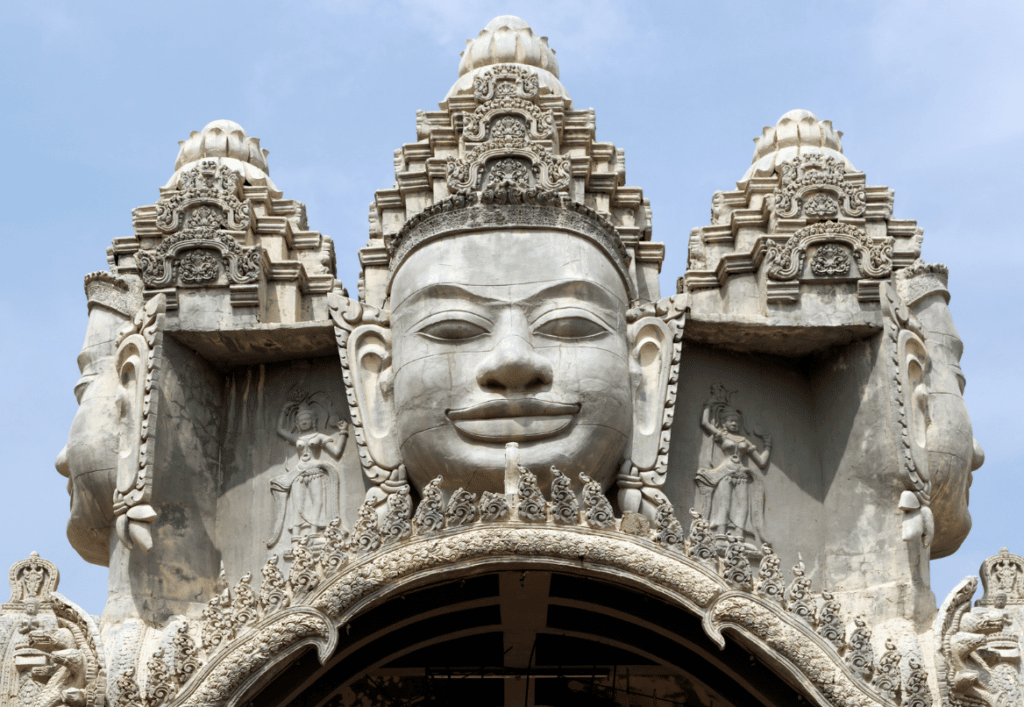Religion has played a significant role in shaping Vietnamese culture and even its cuisine.
With a rich history dating back thousands of years, it’s no surprise that Vietnam is home to a diverse range of religious beliefs and practices. From the ancient animist traditions of the country’s earliest inhabitants to the more recent arrival of Buddhism, Confucianism, and Christianity, religion has played a significant role in shaping Vietnamese culture and even its cuisine.
The three main religions practiced in Vietnam are Buddhism, Confucianism, and Taoism. However, there is also a significant population of Christians, Muslims, and animists. Each religion has its own unique customs and beliefs, and these often overlap with one another. For example, many Vietnamese Buddhists also practice Confucianism, and many animists believe in the power of ancestor worship. As a result, religious beliefs in Vietnam are highly syncretic, and this diversity is one of the country’s most fascinating aspects.
Let’s take a closer look at some of the most popular religious belief systems practiced in Vietnam today.
Confucianism
With roots dating back to the 6th century BC, Confucianism is one of the oldest religious belief systems in Vietnam. Though it is not technically a religion in the strictest sense of the word, Confucianism teaches respect for elders, filial piety, harmony, and other values that are still very much apparent in Vietnamese society today. You can see evidence of Confucian influence in everything from traditional wedding ceremonies to the way family members interact with one another.
Buddhism
Buddhism first came to Vietnam via Chinese missionaries in the 2nd century AD and quickly gained popularity among the country’s elite class. Today, it is estimated that around 70% of Vietnamese identify as Buddhist. Theravada Buddhism—which emphasizes individual salvation—is the most widely practiced form of Buddhism in Vietnam, though there is also a significant Mahayana Buddhist community made up mostly of ethnic Chinese people living in urban areas.
Christianity
Christianity first arrived in Vietnam via European missionaries in the 16th century but did not gain widespread popularity until the French colonial period. As with Buddhism, there are two main branches of Christianity practiced in Vietnam: Roman Catholicism and Protestantism. Roman Catholicism is by far the more popular of the two, with an estimated 7 million Vietnamese followers as opposed to just 1 million Protestants.
Religious Influence on Cuisine
Vietnam is home to a wide variety of religious beliefs and practices, each of which has had a unique impact on the country’s cuisine. Buddhism, for example, is the largest religion in Vietnam and its influence can be seen in the use of vegetarian ingredients and the focus on freshness. Similarly, the country’s strong Confucian tradition has led to an emphasis on balance and harmonious flavors in Vietnamese cooking. Meanwhile, Islam has also left its mark on Vietnamese cuisine, particularly in the southern regions of the country where halal meat is widely used. Whatever your religious beliefs, there’s no denying that Vietnam’s diverse range of religions has helped to create some truly delicious food.
Come to Pho 95 to enjoy our Asian fusion dishes!

